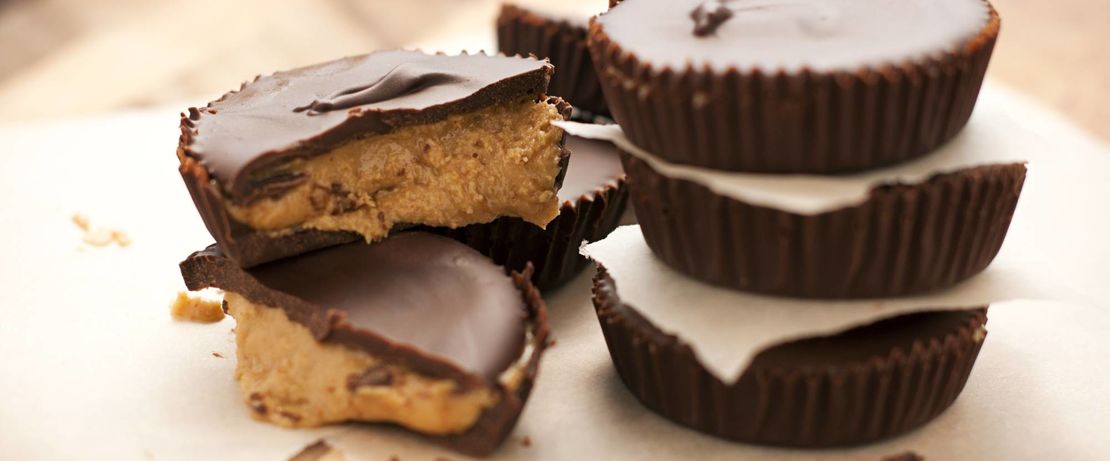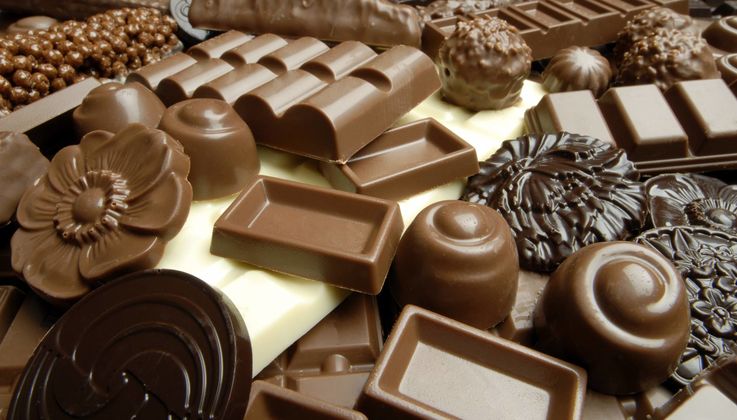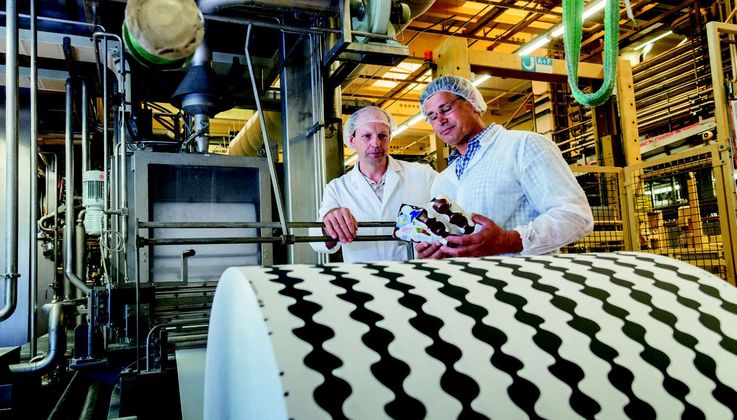
Sweet Temptation
Chocolate is a sought-after soul comforter in stressful situations. And we currently have more than enough of that between home office, household and home schooling. Evonik products ensure that the chocolate adheres well to the confectionery and that the cocoa powder retains the dark colour.
Many scientific papers have already confirmed that chocolate has a positive influence on our well-being. It contains plenty of tryptophan, which is converted to serotonin in the body. The neurotransmitter serotonin, in turn, generates moments of happiness and well-being: the more Serotonin is present, the better our mood. Especially dark chocolate has a lot on the box when it comes to coping with stress. The substances in cocoa activate various hormones such as dopamine and endorphins, which inhibit stress hormones and at the same time have an mood-enhancing effect. And because the level of the body's own messenger serotonin also depends on the light intensity, many people feel tense and exhausted, especially in winter. An increase in chocolate consumption can compensate for this in the dark winter months, at least in the short term.
Crisp shell, good-adhesive glaze or brown colouring: Evonik products give chocolate its special properties. As an acid regulator, potassium carbonate from Lülsdorf ensures that the taste is rounded off and at the same time promotes dark colouring. Whether on muffins or pies: without a chocolate coating, all the treats would taste only half as delicious. To ensure that the glaze adheres well to the dough, baking professionals rely on ingredients that contain special cooking oils and fats. Evonik helps this delicious connection with its catalysts on the jumps. Oils and fats are of plant origin, but are not natural for good reasons: for example, freshly obtained vegetable oils contain impurities that need to be removed. Above all, however, their fatty acid chains consist of carbon atoms, some of which are linked by double bonds. The oxygen from the air attacks these bonds, which quickly perishs the oils and then gives them a rancid smell.
To ensure that this does not happen, a chemical reaction is used: oils and fats are "hydrogenated", i.e. mixed with hydrogen. This process is often referred to as hardening, because by converting double bonds into single bonds, the oils become more viscous or even solid. And because the double bonds cannot be easily loosened, catalysts come into play (from the Greek "kat'lysis", to German "dissolution"). These increase the speed of a chemical reaction without being consumed or changing the reaction. The catalysts required for oil and fat curing are developed and manufactured at Evonik in India. From its Dombivli site, about 50 kilometres east of Mumbai, Evonik sells the catalytic converters under the Brand Name MONCAT™ all over the world.



